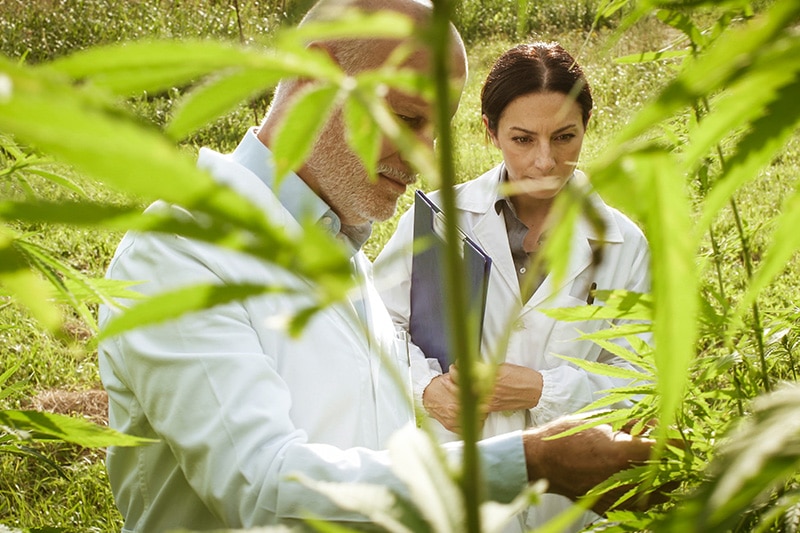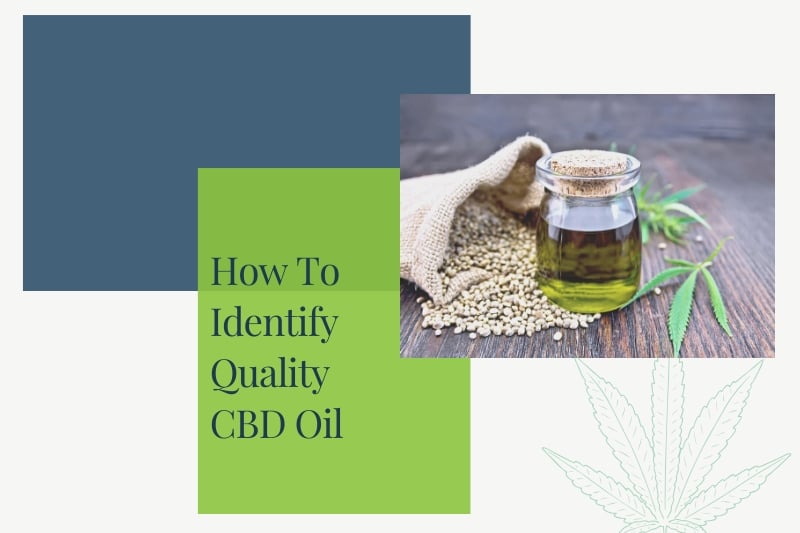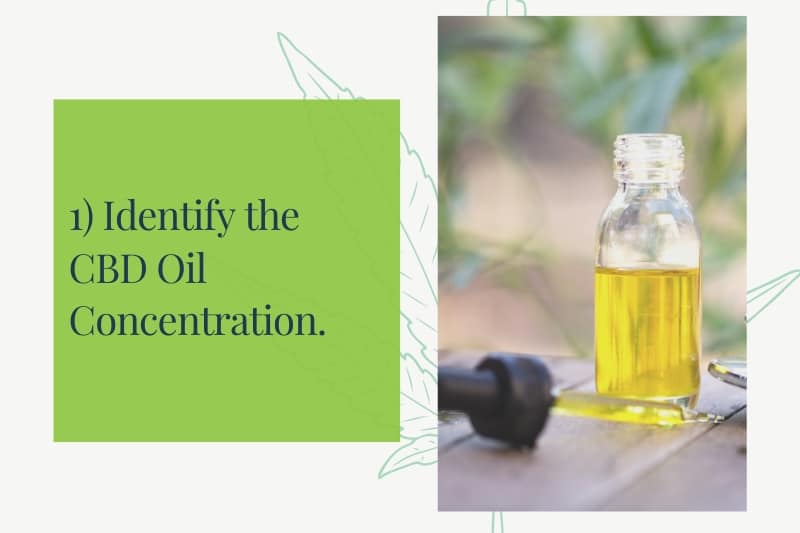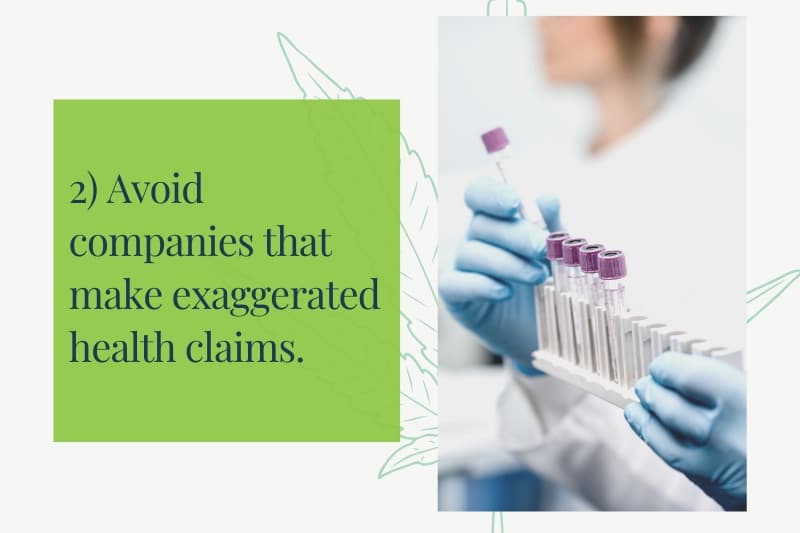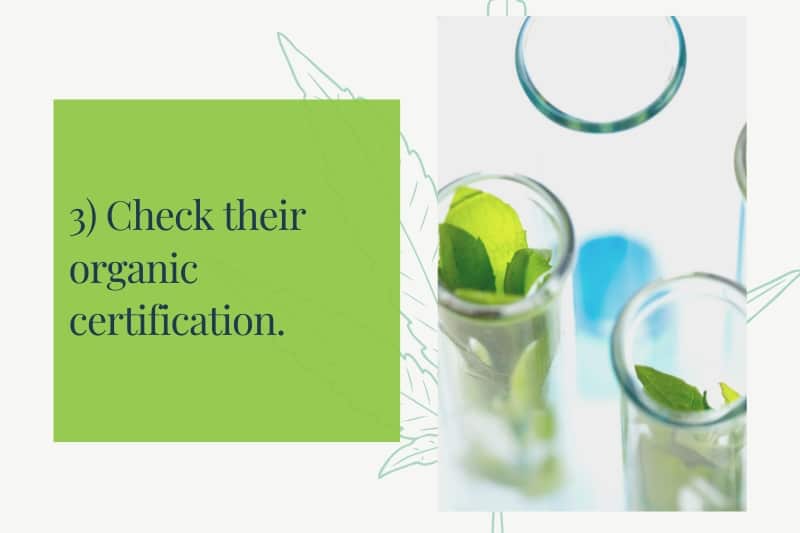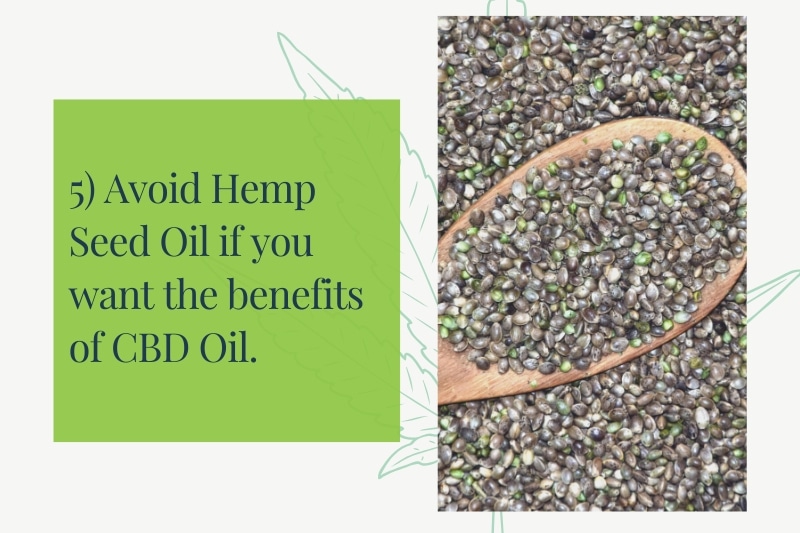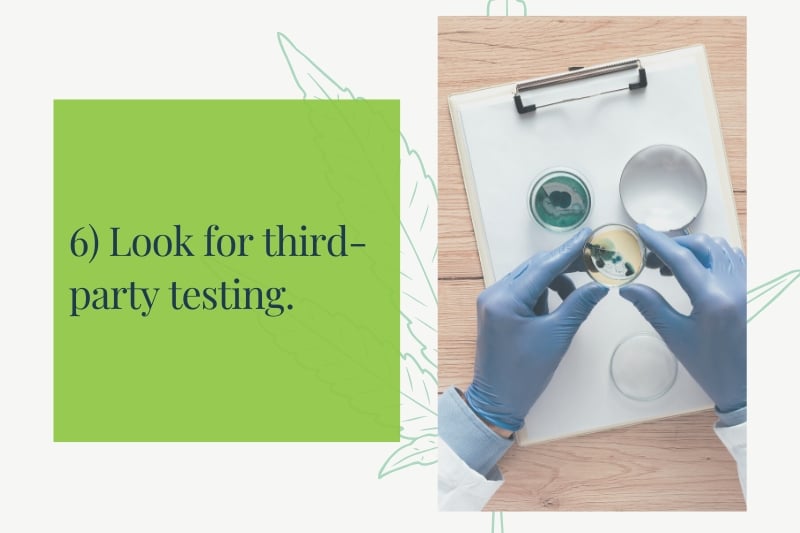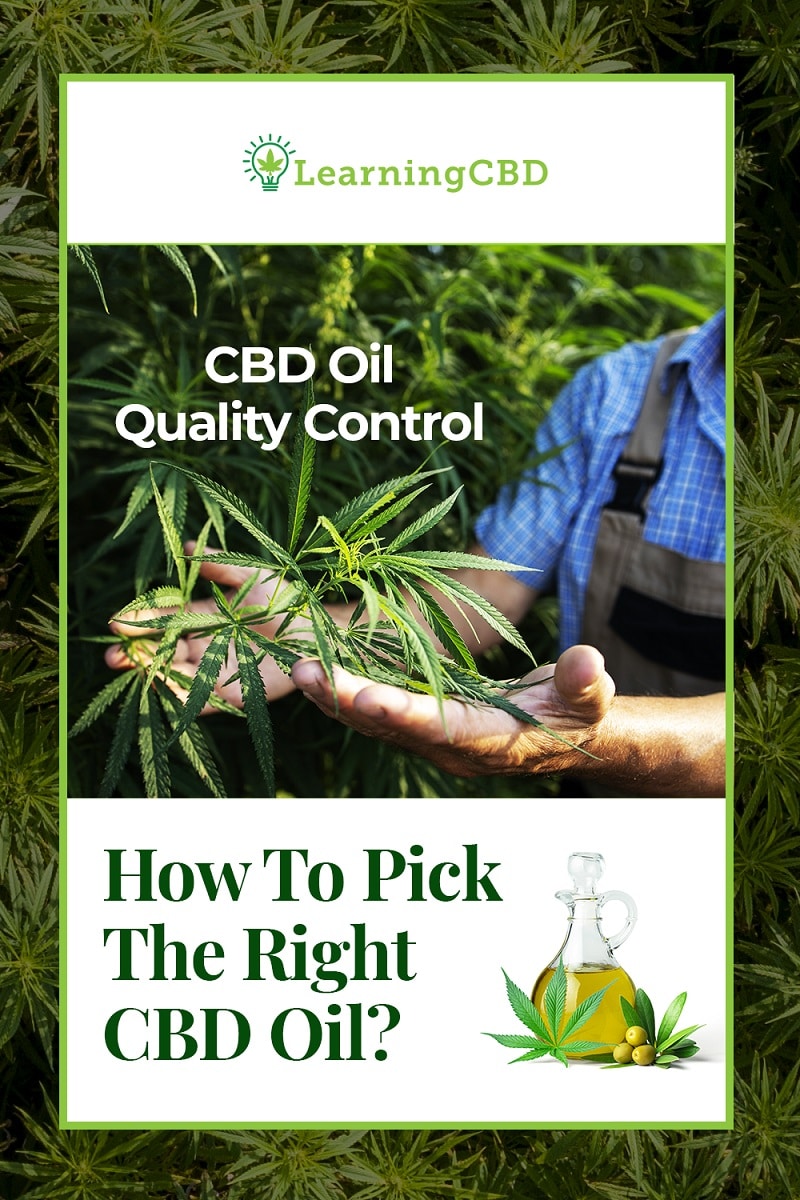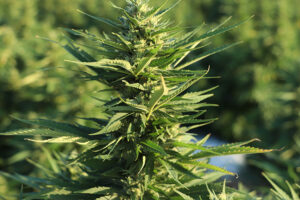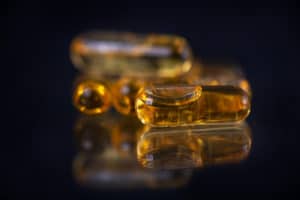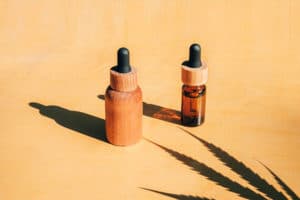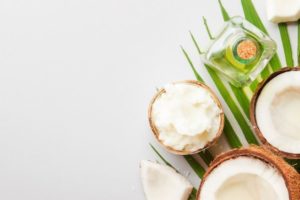You can’t always judge a book by its cover, and that’s especially true when it comes to choosing the right CBD oil. As products flood the market, the lack of government oversight makes it hard to distinguish quality from junk.
Without a discerning eye and a “buyer beware” mentality, consumers are at risk of wasting money on low-quality products. Not only could this result in not getting any of the desired health benefits of CBD, but it could also put your health in jeopardy.
The concept of CBD oil quality control is still relatively new. Still, as the market for CBD explodes and consumers get savvier, quality is going to become more critical than ever. However, not all CBD oil companies are proactive about quality control, so this article will show you what to look for the next time you’re looking for CBD online.
Is CBD Legit?
There’s a lot of debate about whether CBD products have genuine, helpful therapeutic benefits or it’s an overhyped placebo. There are thousands of anecdotal stories about how CBD helped people with everything from back pain and insomnia to panic attacks and digestion.
For decades, the general population thought that THC from the cannabis plant was responsible for these “miracles.” Because THC (delta-9-tetrahydrocannabinol) is a psychoactive compound that makes people high, the government had zero interest in allowing cannabis to be used for medicinal purposes. Instead, they made the entire cannabis plant family illegal, which included both hemp and marijuana.
Even though researchers later figured out that CBD (cannabidiol) played a vital role in helping balance a variety of biological systems, and THC wasn’t a necessary component, it’s taking the public and lawmakers time to catch up to this new revelation. A stigma about cannabis still exists, though people who follow health trends are finally beginning to catch on. 26% of Americans have tried CBD, and that number is expected to rise.
The year 2018 was pivotal because it marked the passage of the 2018 Farm Bill, which legalized CBD with less than 0.3% THC. It was also the year that the FDA approved a CBD drug to treat two types of epileptic seizures. The medication, EPIDIOLEX, has resulted in a dramatic reduction in seizures for the patients taking it.
Still, there are skeptics, and a significant portion of the population claims that CBD does nothing for them. In cases like these, several factors could be at play. Low-quality CBD, inadequate dosages, or mislabeled products could be to blame for lack of efficacy.
That’s why it’s critical to only purchase CBD that has gone through rigorous quality control. This article will help you separate the good from the bad.
How CBD Oil Works
Ask any physician, and they’ll tell you that the body is a self-healing and self-regulating organism. When you cut yourself, your body immediately goes to work on healing the affected area. When you have a disease, your body fights and adapts to try to defeat it. Despite what the pharmaceutical industry tries to tell everyone, we are all equipped with a self-repair process that can even kill cancer cells.
A variety of internal and external factors can interfere with our body’s ability to adapt and heal efficiently, and scientists learn more each day about how this works. In 1992, doctors discovered the endocannabinoid system, which is responsible for homeostasis (stable equilibrium) in much of the body.
It’s believed that the endocannabinoid system helps manage pain, reduce inflammation, balance the immune system, control appetite, regulate metabolism, enhance mood, improve memory, and more.
Researchers also learned that the human body has two types of endocannabinoid receptors. They bind to different parts of the endocannabinoid system, depending on where they’re needed. Taking CBD can help stimulate receptor activity while also preventing the breakdown of endocannabinoids necessary for homeostasis.
This broad-reaching theory helps explain why CBD is believed to help so many conditions and why it can affect people so differently. Instead of being a one-size-fits-all solution like a physician would prescribe, CBD goes to work in the body where it’s needed most.
How to Identify Quality CBD Oil
Despite the lack of regulation by the FDA (Food and Drug Administration) and the confusion around all the similar-sounding terms, there are signs to look out for when buying high-quality CBD.
Just like with any product, especially something you ingest, the first thing to do is check the label. But you also need to know what to look for.
Here’s a list of what you should review:
Identify the CBD Concentration
The effectiveness of the CBD and how much you need to take will vary based on the concentration. Check the label carefully to see how much CBD (cannabidiol) is in each dose. Sometimes, the manufacturer will list the CBD content of the entire bottle, which can be misleading if you don’t know to look for this distinction.
For example, a bottle of CBD might contain 1,000 mg of CBD, but only 10 mg in a dose.
Avoid Companies that Make Exaggerated Health Claims
Because CBD products are classified as a supplement, the FDA prohibits them from making promises about curing any illnesses. For example, a company that claims their CBD products will cure migraines or reduce back pain is not only breaking the law, but they’re also making claims that haven’t been proven.
Organic Certification
Some cannabis manufacturing companies have gone through the process of getting an organic certification. While a company without an organic certification isn’t necessarily bad (the certifications are very expensive), they do indicate that the company has invested in their future. It also shows that they plan to be in the CBD oil industry for the long-term, and they have high standards for the quality of their product.
Determine the Hemp’s Origin
In the U.S., three major areas grow cannabis and make hemp oil: Colorado, Oregon, and Kentucky. Hemp grown in Colorado is considered the highest quality because of spot-testing from the state’s agricultural department.
Hemp is also grown overseas, but buying CBD oil from one of these sources could be risky. There’s zero testing required for these products when they enter the U.S., so you won’t have any idea about their manufacturing practices and standards, or if their product labeling is accurate.
One exception to the rule of avoiding hemp from overseas growers is in Holland. There a couple of reputable companies that source their hemp from that part of the world, and they are known for their CBD quality.
Avoid Hemp Seed Oil If You Want the Benefits of CBD
You might see some products masquerading as CBD oil when they contain zero CBD. A quick look online at Amazon (where CBD products are currently prohibited) will show how some manufacturers are trying to deceive consumers with mislabeled, poor-quality products.
What’s happening on Amazon is that they’re allowing companies to sell hemp seed oil while implying that the items are CBD products. They’re using misleading bottles, labels, and pricing strategies to deceive consumers into thinking they’re getting CBD when they’re getting nothing more than a food supplement.
If you’re not familiar with the difference between hemp seed oil and CBD oil derived from hemp plants, there’s a simple and distinct difference. Hemp seed oil is a cold-pressed oil from the seeds of the hemp plant. It is healthy, nutritious, and packed with vitamins. However, it contains no CBD and does not have the calming and therapeutic benefits that have been identified in CBD.
CBD oil is extracted from the rest of the hemp plant, including the flowers and leaves. These parts of the plant have the CBD compounds.
It can be frustrating to see simple hemp seed oil (which should cost about $10 for a large bottle) be sold for upwards of $25 to people looking for natural solutions to improve their insomnia, anxiety, headaches, and pain.
Look for Third-Party Testing
High-quality CBD products that have undergone lab testing will come with a COA (certificate of analysis). This analysis discloses what is in the product and what concentration. Because these tests aren’t required by law (with the exception of Indiana), not every manufacturer chooses to invest in them.
If a company has not made its third-party test results available, then avoid buying from them. It implies they have lower quality standards, and there are plenty of other reputable hemp oil companies to buy from.
What is Third-party Tested CBD Oil?
Though CBD products are legal in 47 states, many require no testing. Even when it is required, the tests are far from comprehensive. By buying CBD oil from a company that voluntarily tests its products through a third-party lab and publishes a report on their website, you get more assurances that the company is reputable, and their CBD quality is above board. Even more important, you’ll know exactly which compounds that you’re ingesting.
Not all labs are created equal, and there is variation when it comes to reputation and accuracy of the testing facility. As a consumer, you should be evaluating the labs that are creating each report. At a minimum, the lab should meet ISO 17025 standards.
Hemp labs can test for almost anything, but some of the most common tests include THC content and the presence of contaminants in the soil, like heavy metals.
Because many CBD oils are ingested or applied topically to the skin, a detailed report is vital to ensure consumer safety. This is especially true for people who want to avoid THC, either because they don’t want to do psychoactive drugs, or they need to maintain drug-free status.
What many people don’t know is that hemp plants with little to no THC content can end up producing THC if they’re grown under stressful conditions. The grower might not realize that their hemp plant contains THC. Without testing and a lab report, the consumer wouldn’t know, either.
Here’s a list of tests you might see on a lab report:
Cannabinoids
CBD is just one of the many cannabinoids that can be present in the cannabis plant. Others include THC (tetrahydrocannabinol), CBG (cannabigerol), CBN (cannabinol), and more. The jury is still out on how many cannabinoids are in cannabis plants, but estimates vary between 66 and 113. The number of cannabinoids that will be tested depends on the lab, but most reports will show at least 10.
Residual Solvents
When CBD is extracted from the cannabis plant, some of the solvents used in the process can be left behind. Some of the chemicals can be unsafe, especially in higher quantities. Chemicals like benzene, ethanol, and even chloroform can be present when the extraction wasn’t done well.
Terpenes
Terpenes are the compounds in cannabis (and other plants) that give it a distinctive flavor and odor. It’s believed that different terpenes can have various therapeutic effects, but more studies need to be done before concrete theories can be formed. Some of the most common terpenes are pinene, limonene, linalool, and myrcene, but there are more than 200 total.
Pesticides
Various pesticides are used in the growing process, so it’s vital to ensure that those are removed from the consumable product.
Microbials
Microorganisms inevitably form during the cannabis-growing process, and while most microbes are harmless, some can be dangerous if they aren’t removed in the final product. Sometimes these contaminants, even at a small level, can cause harmful effects, ranging from allergies to cancer.
Aflatoxins
Aflatoxin is a type of mycotoxin that can appear in crops, including cannabis. It comes from a highly carcinogenic fungus. Exposure can also lead to side effects like abdominal pain, liver damage, or worse.
Heavy Metals
Cannabis is a highly bio-cumulative plant, which means it can easily absorb heavy metals from the soil. Some of the most toxic heavy metals that labs test for are arsenic, cadmium, cobalt, copper, lead, and mercury. Ensuring that all the heavy metals have been removed is a vital part of the quality control process.
Foreign Materials
If the hemp isn’t handled correctly during cultivation, undesired, foreign materials can make their way into the final product. Typically, the screening process is a visual inspection, with labs looking for items like mold, insects, plastic, metals, etc.
Moisture Content
Knowing how much water is in the cannabis is vital because it ensures the accuracy of the cannabinoid content data. This is because cannabinoid levels are expressed as a percent by weight, so higher or lower moisture numbers will affect the overall concentrations.
Water Activity
Because microbes can be so dangerous and they can grow and multiply after the initial tests and when the cannabis is in storage, some manufacturers also elect for water activity testing. This test measures the amount of water that is available for microbes to use as food.
Is All CBD Oil the Same?
Definitely not! The variation in quality among CBD products has led to an incredible amount of confusion. Not only is there variation between brands, but some of the industry’s naming conventions have also left people scratching their heads, wondering what the heck they’re supposed to buy.
As far as CBD oils go, there are three main types:
- Full-spectrum CBD oil
- Broad-spectrum CBD oil
- CBD oil isolate
Full-spectrum CBD is the oil that has been extracted from the entire plant. These CBD products contain all of the cannabinoids, terpenes, flavonoids, vitamins, fatty acids, etc. Because it doesn’t go through a secondary refining process that separates other cannabinoids, there can be THC present.
To follow the FDA’s legal standards and be sold as a low-THC or THC-free product, there has to be less than 0.3% concentration, but this amount could still affect sensitive individuals or cause a drug test failure.
Broad-spectrum CBD is identical to full-spectrum CBD oil, but with one exception. It has undergone a further refining process to remove all of the THC.
And finally, CBD isolate is a pure product that undergoes multiple extraction processes. By stripping out all the other compounds, you’re left with a purer product, and you avoid contact with any THC.
There are several scientific arguments about whether full and broad-spectrum CBD products are better quality than a CBD isolate. Initially, a physician might have said that taking a pure CBD product is always going to be more effective. However, researchers recently identified something called “the entourage effect.”
This principle implies that the whole is greater than the sum of its parts, suggesting that there are synergistic properties between all of the cannabis compounds that result in a more effective product.
Despite evidence supporting greater efficacy for full-spectrum CBD products, the market for CBD isolate is still quite large. CBD isolate is ideal for creating DIY edibles, topicals, and other CBD products. It’s also sought after by anyone who can’t risk testing positive for THC on a drug test.
READ CBD Oil Drug Test – Does CBD Show Up on a Drug Test?
You might also see the terms hemp oil and CBD oil used interchangeably. However, there could be differences between the two. In fact, they could be totally different products.
For example, hemp oil could be hemp-derived CBD oil, or it could be hemp seed oil. In the first case, hemp oil derived from the cannabis (aka hemp) plant contains CBD, and it’s made from the leaves and flowers. The second term, hemp seed oil, refers to the oil that is pressed from the seeds. It contains no CBD.
If you are looking for the therapeutic benefits that CBD is known for, then make sure you are getting a product that has CBD in it, not a hemp seed oil product that is made to look like CBD oil.
There’s another category of CBD oil, which is derived from the marijuana plant. This CBD oil contains both CBD and THC. The concentration of THC can be up to 30%. CBD oil that contains THC isn’t as readily available. It can only be purchased in states that have legalized marijuana, and even then, there are restrictions about where it can be purchased and in what concentrations.
Is a Certain CBD Company Good?
Finding a trustworthy CBD oil company can be like searching for a needle in a haystack. There’s a dizzying array of options, and it can be a challenge to distinguish between legitimate brands and shady charlatans that don’t know the first thing about quality control.
There are many top-notch CBD suppliers out there. Finding them shouldn’t be too hard. Do your research, get first-hand accounts and make your own decisions based on the data you find.
If you’re looking for high-quality CBD products then make sure that the company you go with has extensive quality control measures in place and that they use the best ingredients.
Conclusion
As companies take advantage of the “green rush” to pocket as many dollars as they can, the customer can end up paying the ultimate price, both with their wallet and potentially their health. The best thing you can do is arm yourself with the facts. By knowing how to evaluate CBD quality, you’ll save money and have a better experience.
FAQs About CBD Oil Quality Control
Question: How to pick the right CBD oil?
Answer: The first thing to do is to check the label. Another thing you can do is check it undergoes third-party testing.
Question: Is CBD a legit way to help in medical treatment?
Answer: According to research, CBD (cannabidiol) played a vital role in helping balance a variety of biological systems.
Question: What are the things you need to see in third party testing of CBD products?
Answer: Check the number of cannabinoids, the residual solvents, and the type of terpene used are just some of the things you need to check.
Question: Are all CBD oils the same?
Answer: Definitely not. There are three common types of CBD oil namely full-spectrum, broad-spectrum and CBD isolate.
Question: What you should look for when buying CBD products for therapeutic benefits?
Answer: Make sure you are getting a product that has CBD in it, not a hemp seed oil product that is made to look like CBD oil.
